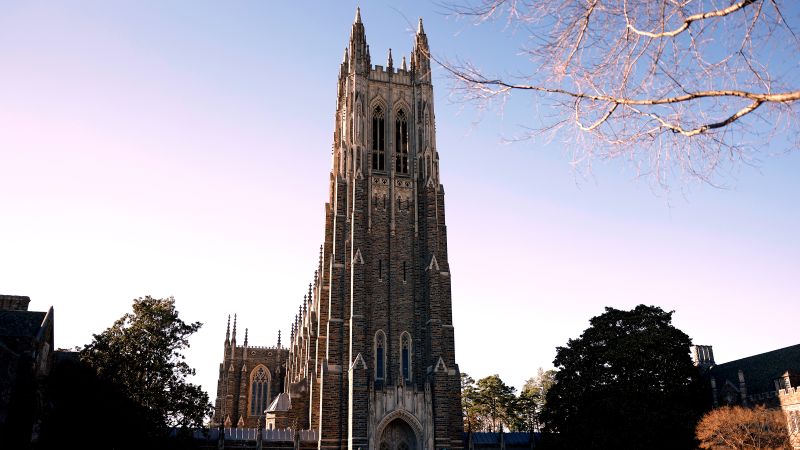The Trump administration has intensified its scrutiny of elite higher education institutions as it targets Duke University in North Carolina over allegations concerning the violation of the Civil Rights Act. This multifaceted approach signifies a broader strategy to hold universities accountable for their race-related policies and practices, particularly those involving hiring, admissions, and financial aid processes. The Education Department has initiated a formal investigation into Duke University and the Duke Law Journal, following reports suggesting that the university may be noncompliant with federal civil rights laws.
Secretary of Education Linda McMahon, alongside Secretary of Health and Human Services Robert F. Kennedy Jr., has reached out to Duke University, alerting the institution to shared concerns regarding its potential reliance on race-based decision-making. This communication underscores the seriousness of the allegations and positions the administration as an active watchdog over educational institutions. The Duke Law Journal, under scrutiny too, has yet to respond publicly to inquiries about the investigation.
These developments follow a significant settlement recently achieved by Columbia University, which agreed to a $200 million resolution with the Trump administration, ultimately restoring its federal funding. Trump administration officials have portrayed the Columbia settlement as a model for other universities facing similar scrutiny. This strategic maneuvering suggests that other prestigious institutions, such as Cornell and Brown, may be in the negotiation phase as they seek to navigate federal funding pressures after failing to comply with newly imposed mandates.
So far, Duke University has appeared resistant to negotiations with the Trump administration. This reluctance to engage could lead to adverse consequences, especially as the administration has previously suspended funding for the University of Pennsylvania for similar reasons. Such actions illustrate the administration’s willingness to exert considerable pressure on universities located in states that decisively supported Trump in the 2024 election.
The investigation centers on potential violations of Title VI of the Civil Rights Act, which prohibits discrimination on the basis of race, color, or national origin in federally funded programs and activities. Alongside this investigation, McMahon and Kennedy’s letter detailed allegations of systemic discrimination within the operations of Duke University’s medical school and its health services. These findings imply a broader pattern of racial bias that the administration aims to address through direct oversight and collaboration with the institution.
In a bid to address these concerns, the Trump administration has proposed that Duke University establish a “Merit and Civil Rights Committee” aimed at fostering collaboration between university officials and the federal government. This initiative reflects the administration’s commitment to eradicating alleged race-based discrimination within educational settings.
The Education Department’s expectations of Duke University are explicit: a comprehensive review of policies and practices is necessary to eliminate any illegal racial preference that could confer undue advantages or benefits. This requirement is accompanied by a demand for clear, actionable assurances that the university will implement appropriate changes moving forward.
By targeting diversity, equity, and inclusion (DEI) initiatives, the Trump administration is fulfilling a key campaign promise from his second presidential term. The administration has criticized DEI efforts, claiming that they create biases and exacerbate societal tensions. Following a series of executive orders aimed at dismantling DEI programs, the Education Department has threatened institutions with the loss of federal funds should they continue supporting such initiatives, leading many to modify or completely eliminate their DEI-related activities.
Supporters of DEI contend that these programs enhance educational environments, fostering greater cultural awareness and civic engagement among students. However, the administration’s pushback against these initiatives underscores a significant ideological divide regarding their necessity and efficacy.
Notably, the administration’s education policies also seem influenced by figures such as Stephen Miller, an adviser who has played a key role in shaping Trump’s higher education strategies. Miller, a Duke alumnus, embodies the intersection of university affiliation with national policy-making, emphasizing how personal backgrounds can affect educational regulations.
Ultimately, the investigations into Duke University may lead to severe repercussions, including the loss of crucial federal funding, which is particularly important in light of impending cuts to grant programs from the National Institutes of Health. As universities feel the strain of tightened budgets, Duke has already initiated a voluntary separation incentive program, with layoffs anticipated to begin soon—an effect of both internal and external financial pressures. This precarious situation illustrates the significant implications of the ongoing political and administrative battles over educational practices and policies.











